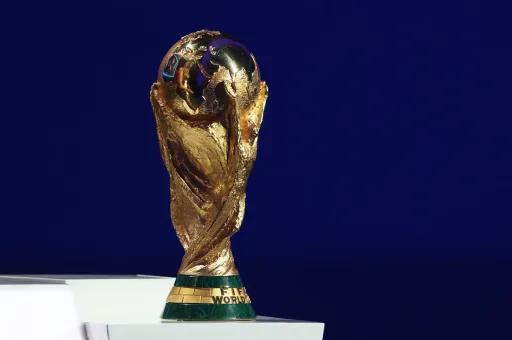By Staff Reporter
In an era where music might often be seen and not heard, American rapstress Bia tells Trinidadian star Nicki Minaj during an Instagram chat that she wouldn't be able to recognise Nigerian acts Wizkid, Davido and Burna Boy by face but knows and enjoys their material.
That's probably as fine a compliment as any to the trio's craft transcending geography.
At the turn of the century, Nigerian and African music acts would be mostly popular within their countries or were, at best, an interplay within the continent.
Hits from Nigeria's Tuface Idibia (African Queen, 2004), DBanj (Fall in Love, 2008), PSquare (Do Me, 2007) are some examples of music that stoked interest outside the region, but never grew to be a big buzz outside African fans living in diaspora.
The past decade has seen an explosion of true-blue African musical success outside home shores, with each year besting the previous in terms of global acclaim. Now, African acts are comfortably winning at the Grammys.
Ladysmith Black Mambazo from South Africa grabbed music's most coveted gramophone five times.
The list balloons with wins by Angelique Kidjo (Benin) and Burna Boy in the Best Global Act categories for 2022 and 2021 respectively. South Africa's DJ Black Coffee won the award for Best Dance Electronic Number in 2022.
The latest sensation, Nigerian singer-songwriter Tems, had her moment in the sun at the 65th edition of the awards in Los Angeles in February, winning in the Best Melodic Rap category alongside US rappers Future and Drake for her song Wait for You.
African music distinctiveness
Wizkid and Davido have had their share of global acclaim at the Black Entertainment (BET) Awards, winning the Best International Act for Africa and Best International Act awards respectively.
Wizkid also made international headlines when he beat Drake and Kanye West to the Best International Act trophy at the Music of Black Origin MOBO awards in 2021.
So, what is fuelling the export of African talent and their durability on the global charts?
Phiona Okumu, head of music for Sub-Saharan Africa at streaming giant Spotify, is convinced that the distinctive African sound has matured at the right technological age.
“Technology has significantly shifted the dynamics of the music space. Over the last few decades, radio was the most popular method for people to listen to music and learn about new or emerging artists. Today, streaming has proven to be a powerful way for artists and songwriters to share their art," she tells TRT Afrika.
In 2021, Wizkid sold out the massive 20,000-capacity O2 Arena in South East London in just 12 minutes, making him the very first African act to do so and putting him in an elite club of "02 Arena-sold-out-under-15-minutes" that includes Beyonce, the Spice Girls, Rihanna, The Rolling Stones, Monty Python and Garry Barlow.
Even without the big stage, music talent from the continent is prospering. Ghanaian entertainment writer Ameyaw Debrah explains why.
Thirst for African music
"Today, you can be in Ghana and upload your music, and someone in a town in Mexico can access it. Social media makes it easy for fans to have access to artists and their music and have conversations that help to promote these artists even further. The quality of song, music videos, and collaborations have also contributed," he tells TRT Afrika.
South African music producer Taffy Da Don believes that the uniqueness of African sound scores over the ubiquity of most others.
"African acts have weeded out every western and other foreign elements or characteristics from their sound. Now, it's purely African. It is the quality of it being so African and yet so catchy that is driving the export and consumption of African sound on the global stage."
With the sound of Africa catching on, can collaborations be far behind? From Beyonce to Justin Bieber, Ed Sheeran to Chris Brown, top international names have already collaborated with majorly Nigerian artists.
American soul singer Omarion teamed up with Diamond Platnumz from Tanzania while Kenyan pop band Sauti Soul jumped on the beat with American balladist Indie Arie. Hong Kong's DJ Sidtrus announced last year he was featuring two rising Nigerian acts, Yung Bos and Sultan Afrob, on his album.
He told local media that the Asian audience was thirsty for more Afro vibes in Asian party life.
Demand for the African sound has grown so much that there have been instances of things going out of hand.
Last December, a crowd crush forced organisers to cancel Nigerian singer Asake's gig at the Brixton O2 Academy in London, which had already filled to capacity with close to 5,000 fans.
Artificial intelligence a 'game changer'
The organisers announced on stage that another 3,000 fans outside had breached the door and were trying to force their way in. Two people died in that incident.
One Africa Music Fest, a major show organiser on the continent, said on Instagram recently that they had booked leading African acts to tour four continents (Europe, Asia, Australia, North and South America) and over 100 cities in 2023.
Debrah, who has seen the journey from obscurity to success, can't help but marvel at it. “Seventeen years ago, when I started entertainment reporting, it wasn't common to hear an African artist say he or she wants to win a Grammy. But now they have seen it's possible, and they're going for it," she adds.
"Tools such as data analysis, machine learning, and artificial intelligence available on streaming services have progressively enhanced and changed the way artists connect with their fans and this has helped them to build their careers and audience reach."
Phiona sees AI being the next game changer in music. "Tools such as data analysis, machine learning, and artificial intelligence available on streaming services have progressively enhanced and changed the way artists connect with their fans and this has helped them to build their careers and audience reach."
It's off season now for most African artists, giving them a much-needed break from the intense holiday concerts in the final weeks of 2022.
They will be back on the road soon and in their studios, aiming to brew the magic of African sound that will be music to the world's ears.
























